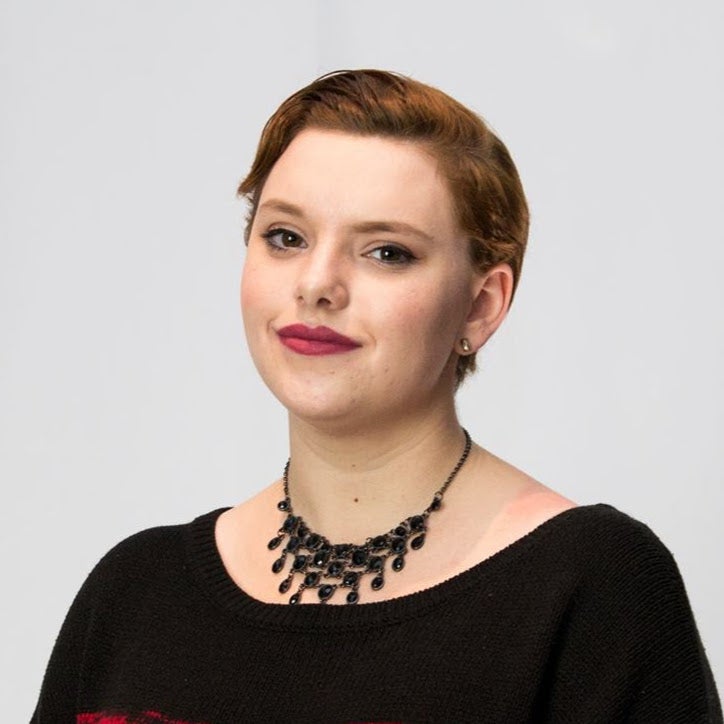
-Trisha Kangas
Before starting at Boise State Esports, Rae Barnes was a Computer Science major who felt a bit lost when imagining the future of her career. She started working at the esports training lab, but once the team started moving to the arena, she had a sit down with head coach, Doc Haskell. He put her in front of the broadcasting station and taught her how to cut cameras for Overwatch.
“It was really overwhelming at first, but thrilling, so I kept helping with broadcasting on days the previous technical director couldn’t make it and, eventually, just made a spot for myself on the production team,” Barnes said.
Since then, she’s kept at it, found a love for esports broadcasting, and has even changed her major to Media Arts with an emphasis in TV/Broadcasting. Two years later, she’s a Technical Director and teaches other students how to run a collegiate production.
During her time with the team, Barnes has been able to participate in events like the High School Tournament, in which she helped facilitate teenage players as they competed on stream. She remembers feeling a deep sense of pride and connection being able to make that happen for young gamers.
“Seeing how happy all the students were, either playing or watching their friends play on stream, was really rewarding.”
It’s not only special events which excite Barnes, but also the day to day. She’s humbled when people take notice of the hard work she and the team put into their weekly broadcasts, “I also find it an achievement whenever someone in chat says how good our production looks and compares it to big, professional podcasts. Those are my favorite comments to get.”
For anyone who is curious about how to get into esports broadcasting, Barnes suggests an inquisitive outlook on what you can achieve. It’s her idea that anyone can start by simply asking questions like, “How did they do that?” By watching as much esports TV, streams, and other media as possible and not being afraid to really dig in and try, anyone who’s truly interested can get started with esports.
“The biggest piece of advice I have is to get involved somehow, ask for a job, ask to understudy, ask to sit in a learn, and start doing what you can on your own.”
Barnes has witnessed an evolution of esports at Boise State and she’s happy to be a part of it. Where once many gamers, like herself, felt out of place, they now have somewhere to call home. Not only that, but this unlikely community, which was born from the passion of just a few individuals has now blossomed into something much greater.
“In four years, we have seen a massive increase in players, audience, casters, and production members, so I would expect that we can continue to grow. I’m just happy to see a space for gaming and those that enjoy games.”
As for her future, Barnes wants to continue down the broadcasting path, “My biggest aspiration is to work on a professional League of Legends production like the LCS broadcast.”
Although, she also feels a kindred spirit in students and colleges who are still trying to get their esports dreams off of the ground, “I also want to help other college esports programs get productions up and running.”
Barnes reflected on her own feelings of ambiguity from when she first started in the training lab and sees the invaluable experience that joining the esports team has brought to her and can potentially bring to other students everywhere.
“Before working with eSports I had no idea what I wanted to do, but now I have a general direction of where to go. Working with eSports has given me new friends and an entire community to be involved in. Without eSports, I would probably be stuck in a job that I hate.”